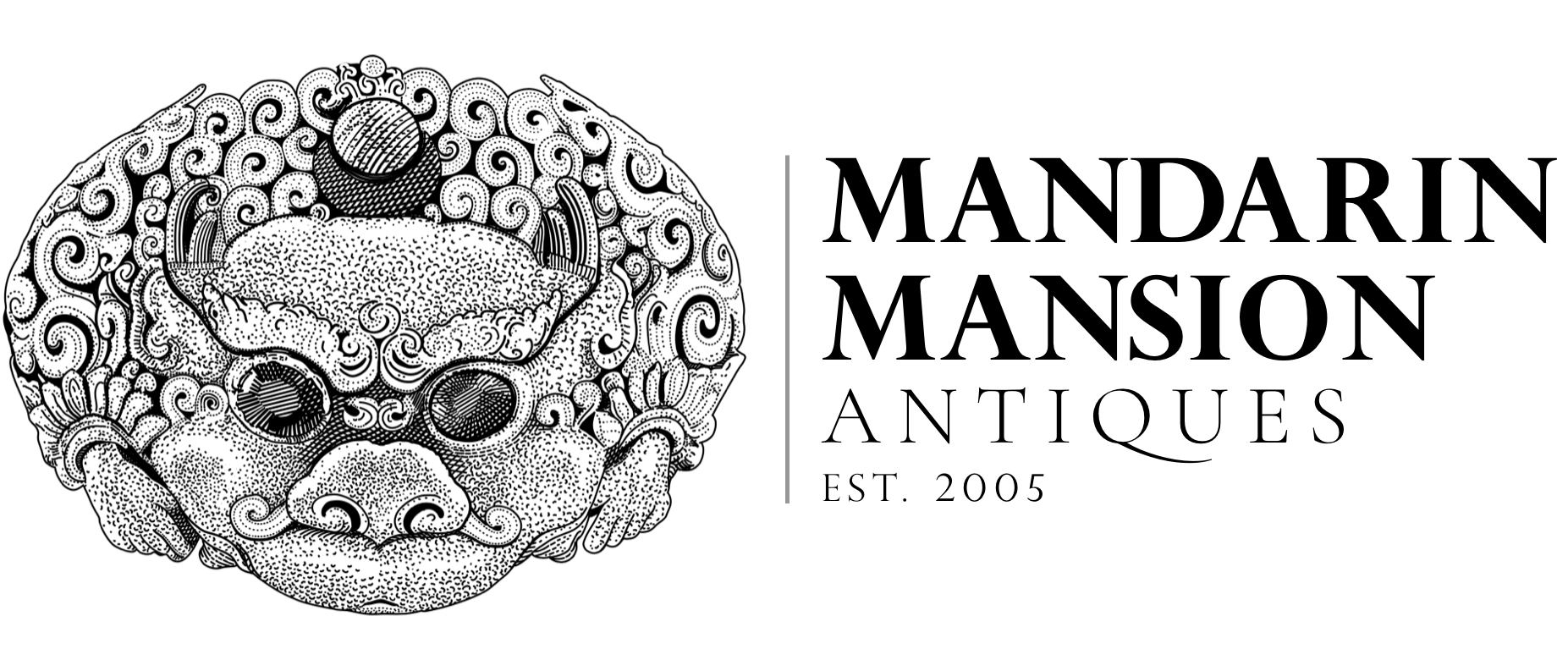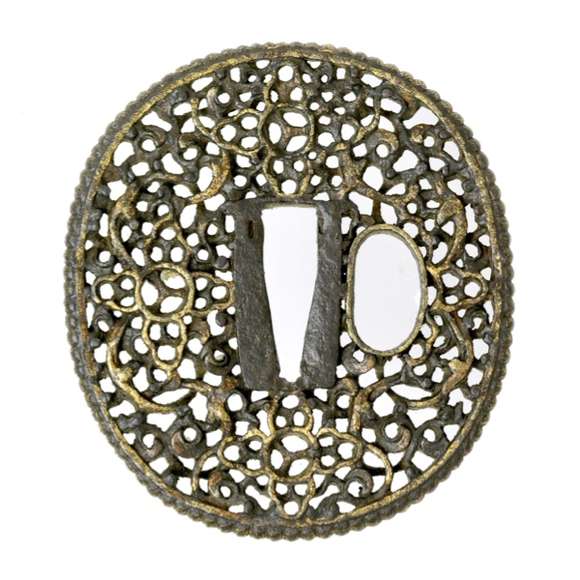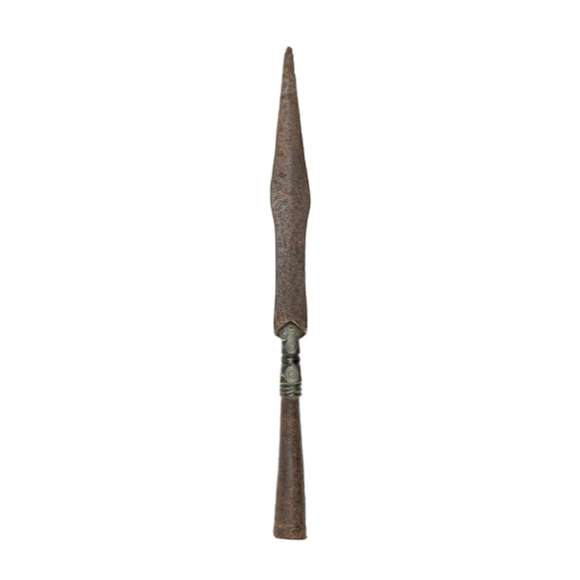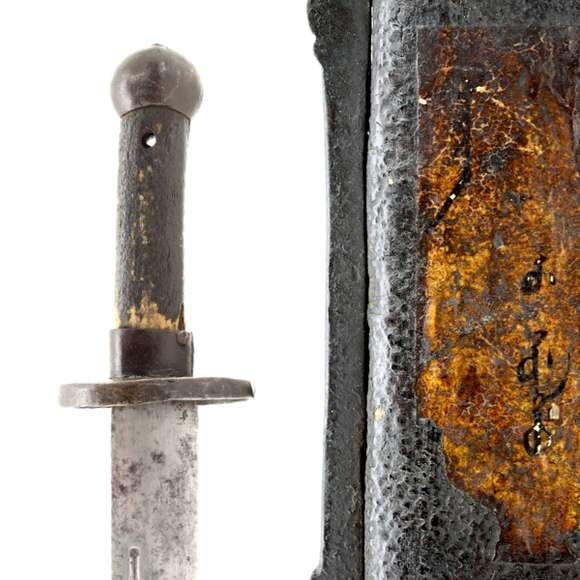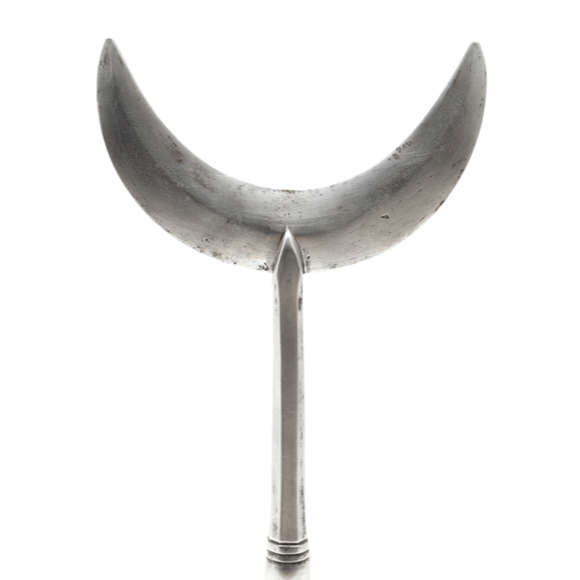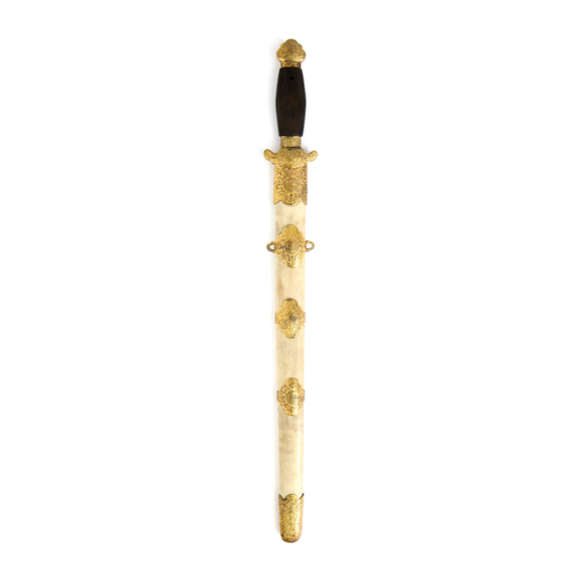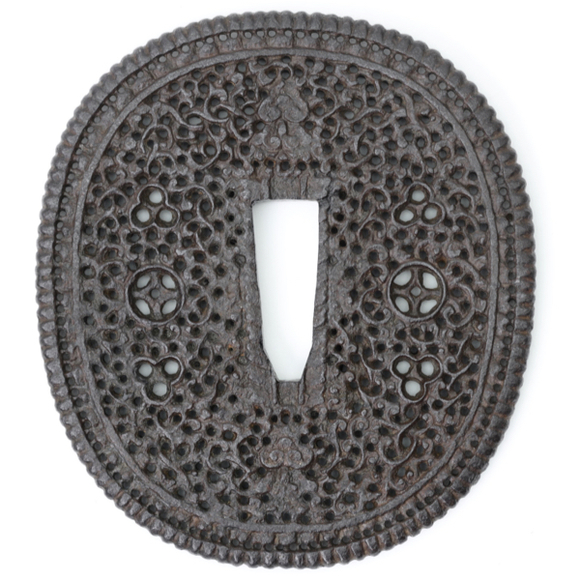Language: Manchu
Source: Classical literature
Description
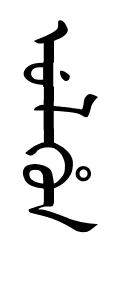
Ulhun
The Manchu word for tūnkǒu (吞口), a collar piece on the base of a sword or saber that helps secure the guard and ensures a tight fit in the scabbard.1

One of the earliest known examples of such a collar on a Eurasian steppe saber, 10th-13th century.
Metropolitan Museum accession number 2000.609.


A tūnkǒu on a Chinese saber.
 A tūnkǒu on a 17th-century saber that is chiseled from the base of the blade.
A tūnkǒu on a 17th-century saber that is chiseled from the base of the blade.
Alternative meanings of the word are:
1. Dewlap
2. Collar of a jacket, fur collar on a court garment
3. Border of a quilt
4. Foundation of a battlement of a city wall2
Also see the Chinese: dāo tūnkǒu (刀吞口)
For a complete overview of saber parts, see: A Chinese saber glossary.
References
1. Tongwen Guanghui Quanshu (同文廣彚全書) or "Enlarged and complete dictionary" of 1704. A Qing imperial dictionary in Chinese and Manchu, each entry double checked and approved by the Kangxi emperor, and Wuti Qingwen Jian (五體清文鑑) or "Five languages compendium", a Qing imperial dictionary in Manchu, Mongolian, Uighur, Tibetan and Chinese of 1766.
2. Jerry Norman; Concise Manchu-English Lexicon, University of Washington Press, Seattle, 1978.
